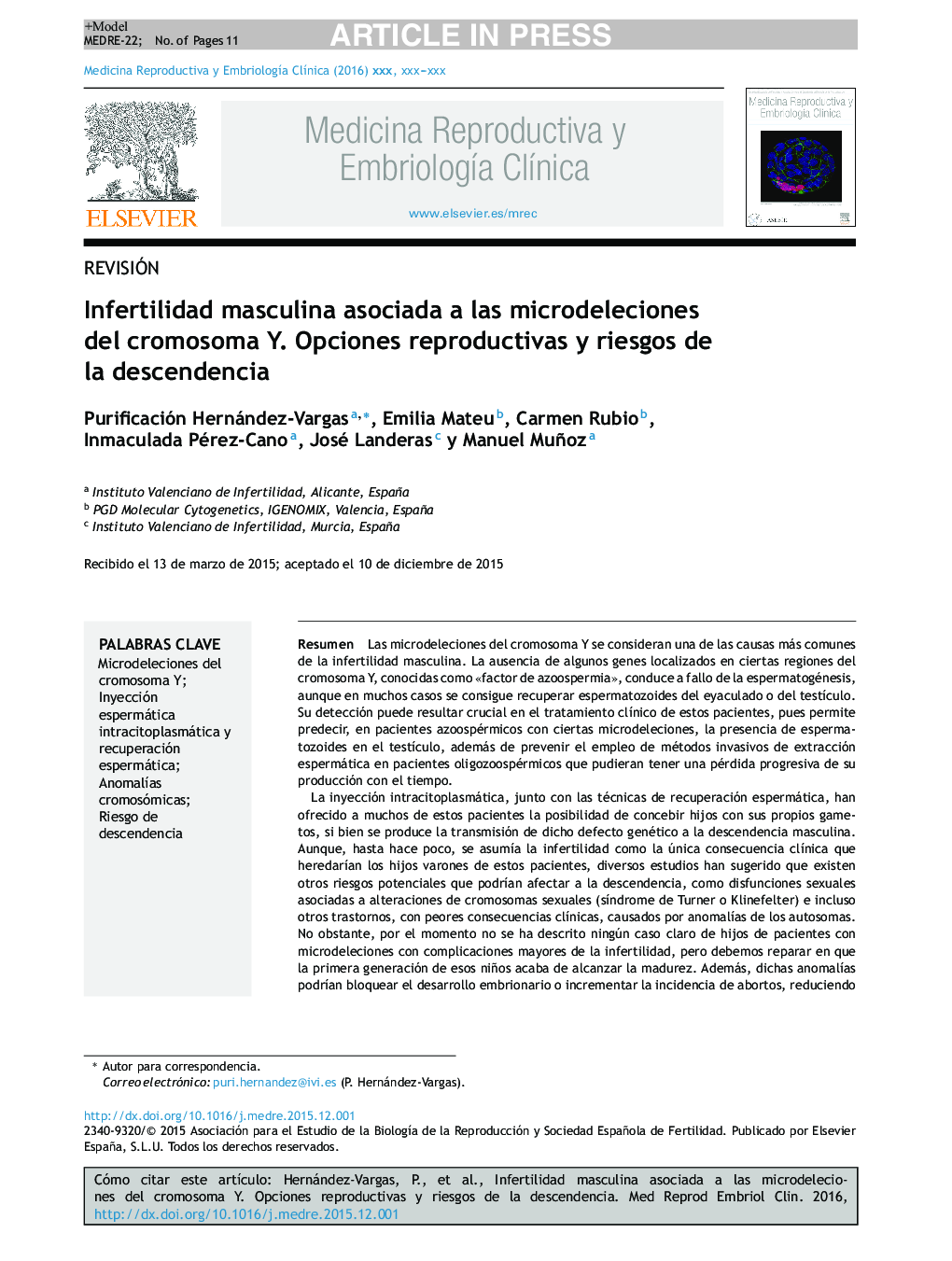| Article ID | Journal | Published Year | Pages | File Type |
|---|---|---|---|---|
| 3965994 | Medicina Reproductiva y Embriología Clínica | 2016 | 11 Pages |
Abstract
Intracytoplasmic sperm injection, together with testicular or epididymal sperm retrieval for azoospermic men, has allowed these patients to become fathers using their own gametes, but the ability to vertically transmit that genetic defect, and thus, the infertility, to the offspring has been commonly accepted. Until recently, no clinical consequences other than infertility were supposed in the sons of fathers with deletions. However, different studies in the last few years suggest other potentially risks transmitted to the offspring, such as development of sexual dysfunction due to sex chromosome abnormalities (Turner or Klinefelter syndromes) or other somatic disorders, with worse health consequences, caused by chromosome aberrations in autosomes associated with Y-chromosome microdeletions. To date, no major clinical complications other than infertility have been described in the offspring born from fathers with deletions, but it is important to remember that the first generation of those babies has just reached maturity. Moreover, the aforementioned chromosome anomalies could halt embryo development or increase miscarriage rate, reducing the chances of a successful pregnancy in affected couples attending infertility clinics. Therefore, the actual risk of transmitting different anomalies associated to microdeletions to the offspring should be clarified in order to establish the most appropriate treatment for these patients.
Related Topics
Health Sciences
Medicine and Dentistry
Obstetrics, Gynecology and Women's Health
Authors
Purificación Hernández-Vargas, Emilia Mateu, Carmen Rubio, Inmaculada Pérez-Cano, José Landeras, Manuel Muñoz,
